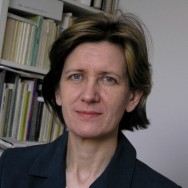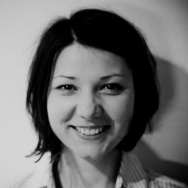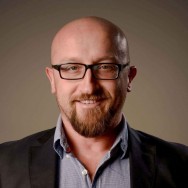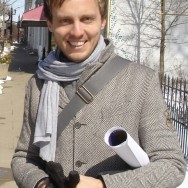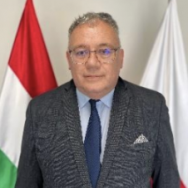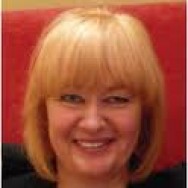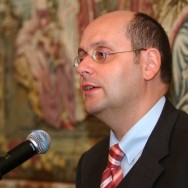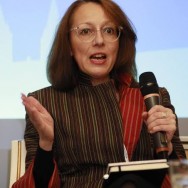Assistant Professor at the Institute of Audiovisual Arts of the Jagiellonian University of Krakow. Expert in the documentary film of Central Europe and Czech and Slovak cinema. Graduated from Jagiellonian University with degrees in history of art, filmology and journalism. Her PhD thesis (1995) analysed the Polish documentary in the 1980’s in its political, historical, literary and sociological context. Has published in a.o. Kino, Kwartalnik Filmowy, Studia Filmoznawcze, Universitas, Tygodnik Powszechny, Kultura Popularna, Kinowedczeskije zapiski. Has published (under the name Jadwiga Głowa) books: “Zooming in on History’s Turning Points. Documentaries in the 1990s in central and Eastern Europe. Papers from an international seminar held on May 29, 1999. Jagiellonian University Cracow”, „Dokument filmowy epoki Havla” (“Film Documentary in Times of Havel”), which examines Czech documentaries made after 1989 during the time of intensive political and economical changes. Member of the Programme Council and the Selection Committee of Krakow Film Festival (former International Short Film Festival). Member of the juries at the international film festivals in Denmark, The Czech Republic, Slovakia, Poland, Germany, Finland, Sweden, Yugoslavia, Iran, Israel, Italy. Has organized the international film festival “Human dignity, Tolerance and the Holocaust as seen through the medium of the documentary film” (Swedish International Culture Forum, Stockholm 1999). Head of Program and the coordinator of the festivals about human dignity and tolerance in Stockholm (2001, 2003). Has take a part in the international project Visegrad Documentary Film Library - Prague 2002/2003. An expert at the Polish Film Institute.
Experts
Jakob Hurrle
Currently he coordinates the programme development of the organization and supervises the Diversity Management seminars. He became the executive director of the Multicultural Centre Prague in February 2007 and currently he coordinates the programme development of the organisation and supervises the Diversity Management seminars. He is also a member of the editorial board of Migration Online. Since 2002, a fellow at Humanity in Action and Polish country monitor for the European Roma Right Centre in Budapest . He obtained his MSC in Urban and Regional Planning at Berlin Technical University after study and research visits in Warsaw, New York and Slovakia. His thesis evaluated Roma-targeting development projects in rural Eastern Slovak communities. As a guest scholar at the Graduate Center of the City University New York, he also conducted research on the Polish-Jewish emigration of 1968. He is publisher of PLOTKI, a Czech-Polish-German student magazine since 2000. In the year 2000 he took Internship at the Department for Strategic City Development in Prague and in a NGO which lobbies against urban sprawl in Central and Eastern Europe.
Zuzana Husárová
A postdoc scholar and author in the field of electronic literature, teaching at Comenius University (SR) and Masaryk University (CZ), an ex-Fulbright scholar at MIT, USA (2011). She co-edited with Bogumiła Suwara a publication „V sieti strednej Európy”. She is the author of experimental literature across various media and with Ľubomír Panák has created interactive literary pieces (“Enter: in' Wodies”, “:I: *ttter”, “BA-Tale”, “Pulse”). She is the author with Amalia Roxana Filip of a transmedia project “liminal” (visual poetry book and multimedia at www.liminal.name). She collaborates with four artists on a multimedia performance “Phenomena Research”.
Adnan Huskić
Michal Hvorecký
Born in Bratislava. Redactor of inZine magazine and editor-in-chief of the multimedia magazine music5d.sk. Studied esthetics at University of Nitra. Published several books translated into Polish, Czech and German. The most important representative of Cyberpunk in Vienna and Bratislava.
Wassim Ibrahim
Wassim Ibrahim was born in Damascus, Syria in 1978. He is an educated musician and composer. He entered the Higher Institute of Music in Damascus in 2005; graduating in 2010. Ibrahim completed a Master of Music degree in composition at the Music Academy of Krakow, Poland in 2015 under the direction of Prof. Józef Rychlik. Currently he is a PhD candidate in Music Composition at the Music Academy of Krakow, Poland. Ibrahim's professional work as a composer began in 2002, His compositions have been premiered and performed in Poland during the International Warsaw Autumn Festival; for the contemporary music in the Austrian Cultural Forum in Warsaw. His Orchestra' piece Behind the Death was performed in The Concert Hall of Philharmonic-Krakow- Poland, Axes festival at the Music Academy of Krakow-Poland, Ibrahim's Soliloquist have been featured for the Syrian Cultural Days Festival in the Muth Theatre Vienna, Austria; an independent concert in Burgtheater Kasino, Vienna, Austria, Eherbal saal Vienna, Austria. In 2015 Ibrahim's composition Damascus Breeze was premiered in New Jersey, USA and in 2016, Elegy was performed in Wisconsin. His compositions have also been enjoyed in Germany, Russia, Algeria, Jordan, Lebanon and the Opera House of Damascus.
H.E. István Íjgyártó
Dorota Ilczuk
An Assistant Professor of Social Economics, at the Faculty of Management and Administration, Jagiellonian University, (Cracow). Wrote over fifty publications, studies and articles (mainly in Polish) which center upon civil society, culture, economy and non-profit sector. Most recent works include a research into civil society in Europe entitled Cultural citizenship: civil society and cultural policy in Europe. Lead many research projects commissioned by the Ministry of Culture and Art.and the Polish Scientific Committee (KBN). Has been a Council of Europe expert and consultant for: The Program of Evaluation Cultural Policies in Europe (1995); The Latvian Report (1997); Privatization and Desetatisation: National cultural institutions in Transition (1998/1999); Mosaic project for Romania and Bulgaria (2001).
Michael J. Inacker
Vice-President of the Board, Director for Policy and Foreign Affairs of DaimlerChrysler in Stuttgart (Germany). Studied Political Sciences, Public Law as well as Medieval and Contemporary History at the University of Bonn and at the Center for International and Strategic Affairs (CISA) at the University of California, Los Angeles (UCLA). Former editor of: WELT am SONNTAG, Hamburg; Rheinischer Merkur, Bonn and Frankfurter Allgemeine Zeitung, Berlin. Head of the Berlin offices of the Frankfurter Allgemeine Sonntagszeitung and Die WELT. Author of several books (i.e. The German role during the Gulf-war 1991 and The relationship between church and democracy in Germany) and publications regarding economic and foreign affairs. The latest one is an essay on the relationship between politics and new economy. Award Winner 2002 for “creative branding of new terms” of the German publishing and dictionary group Klett/Pons in Stuttgart.

